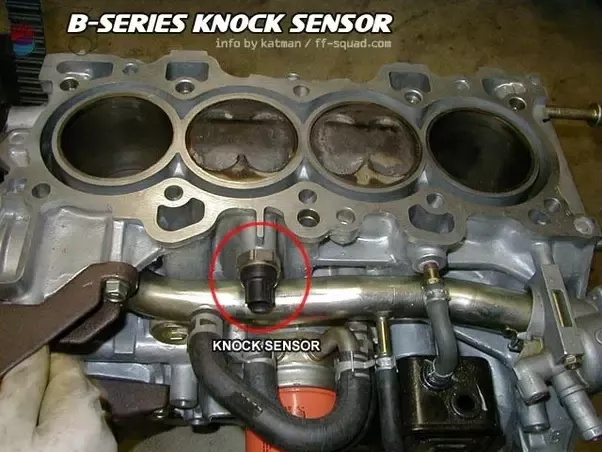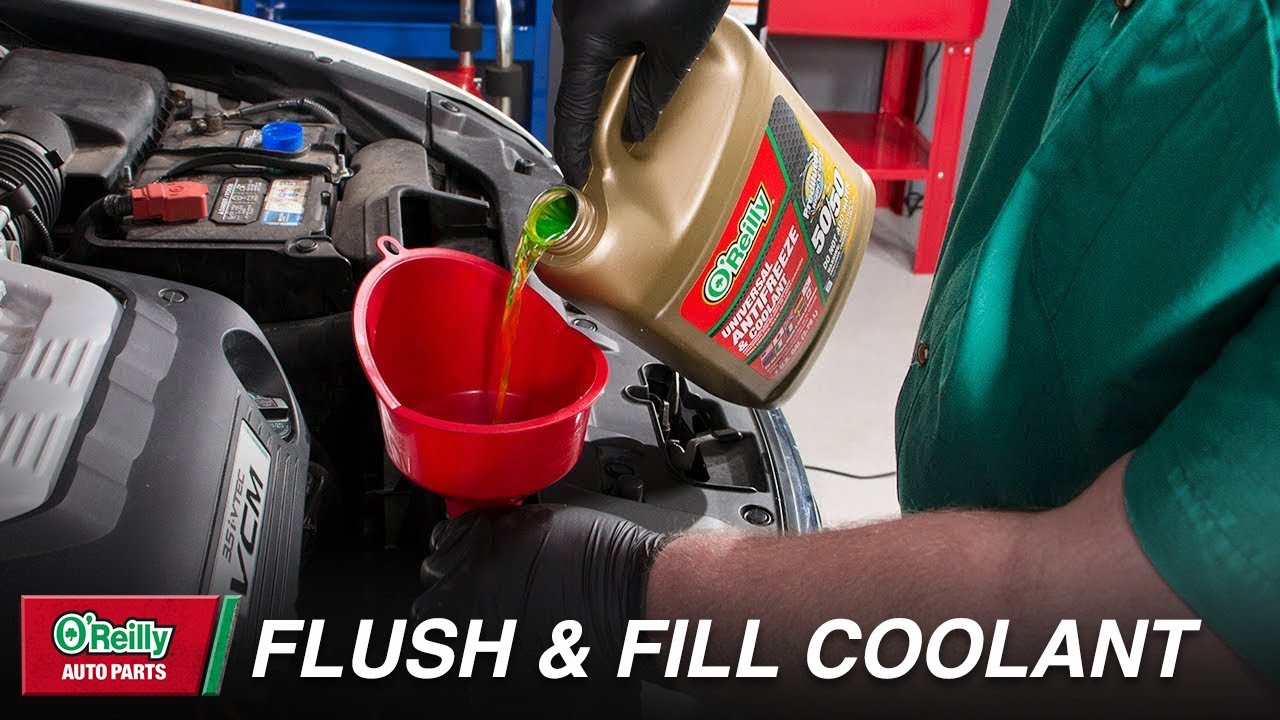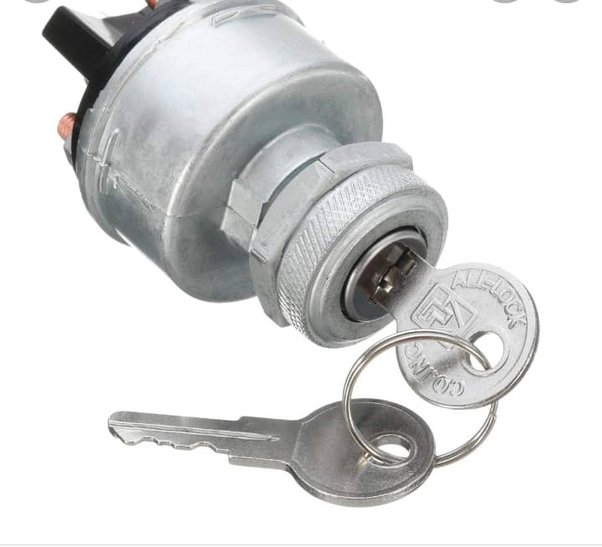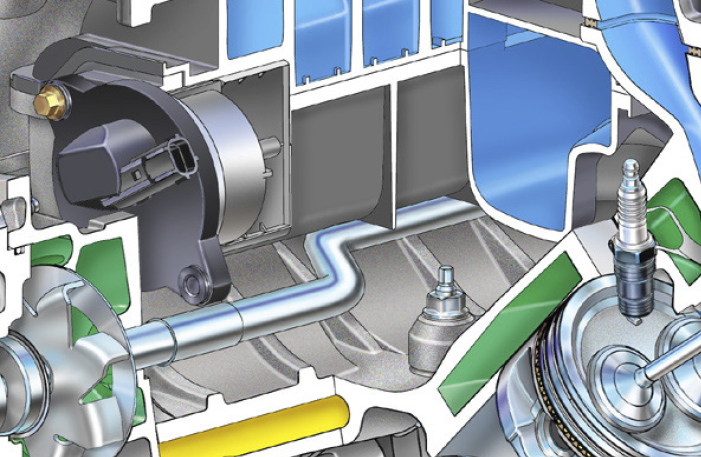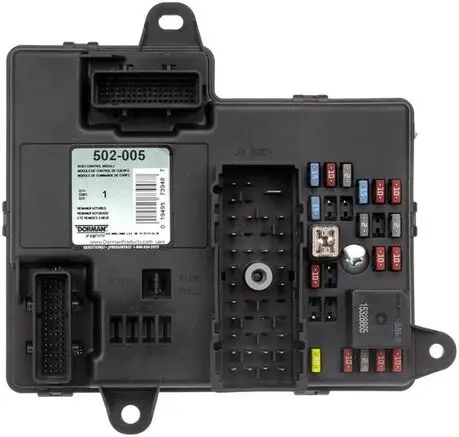Can a Knock Sensor Cause a Car to Stall
Yes, a knock sensor can cause a car to stall by detecting engine vibrations and triggering the engine control unit (ECU) to make adjustments that can affect the engine’s performance, ultimately leading to a stall. A knock sensor is an important component in a car’s engine management system, designed to detect and prevent engine knocking or pinging caused by the air/fuel mixture detonating too early.
When the knock sensor fails or malfunctions, it can send incorrect signals to the ECU, which may result in the ECU making incorrect adjustments to the air/fuel mixture, ignition timing, or fuel delivery. This can lead to a stall or rough running condition, adversely affecting the vehicle’s performance and drivability.
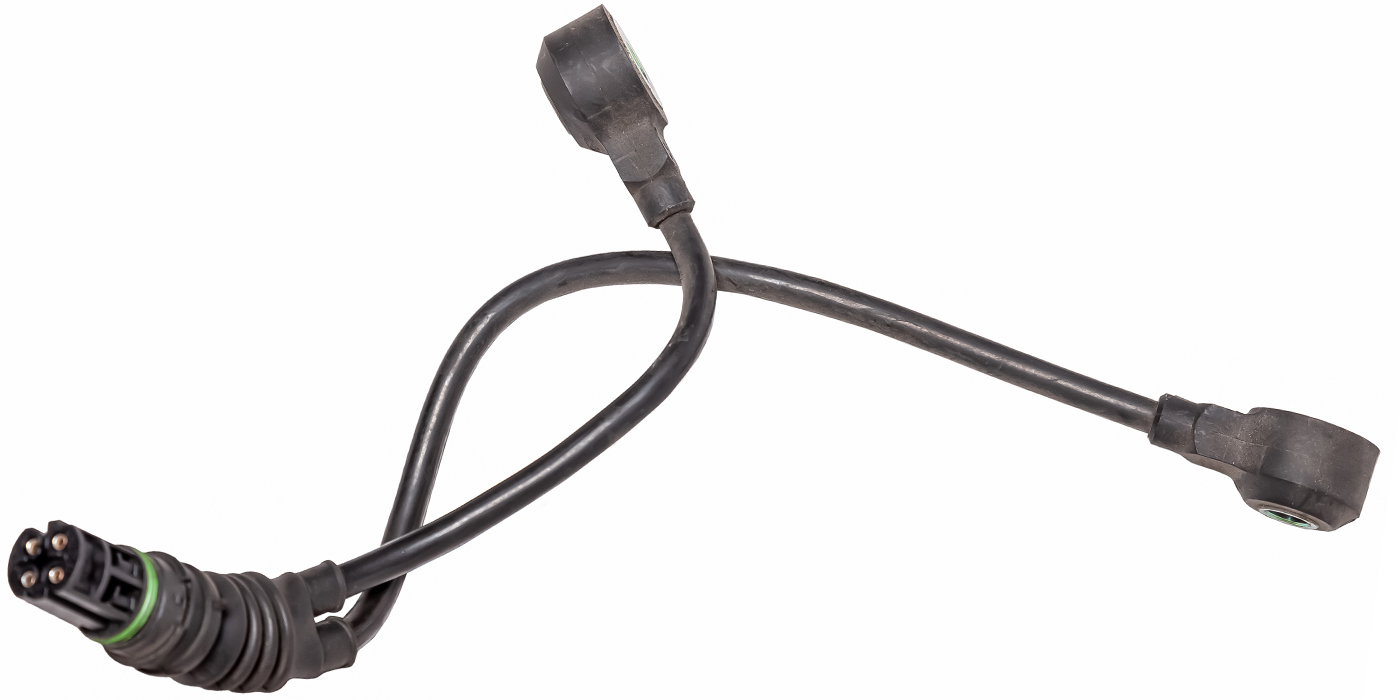
Credit: www.underhoodservice.com
What Is A Knock Sensor?
If you’ve ever wondered about the inner workings of your car’s engine, you may have come across the term “knock sensor.” A knock sensor plays a crucial role in ensuring smooth engine performance and preventing potential damage. Let’s explore what a knock sensor is and its function in more detail.
Function Of A Knock Sensor
A knock sensor is a vital component of a car’s engine management system that detects abnormal combustion, commonly known as engine knocking or pinging. It serves the essential function of detecting unusual vibrations and noises within the engine, which can indicate potentially harmful conditions.
Role In Engine Performance
The knock sensor relays the detected engine vibrations to the engine control unit (ECU), enabling the ECU to adjust the ignition timing and fuel mixture to prevent knocking. By doing so, the knock sensor contributes to optimized engine performance, fuel efficiency, and overall longevity of the engine.
Credit: www.quora.com
Common Signs Of A Faulty Knock Sensor
A knock sensor is designed to detect abnormal vibrations in the engine, which can indicate the presence of engine knock or detonation. When a knock sensor goes bad, it can disrupt the engine’s performance and potentially lead to a stall. Recognizing the signs of a faulty knock sensor is crucial in maintaining the health and efficiency of your car. In this section, we will explore four common signs that may indicate a faulty knock sensor.
Engine Misfire
One of the most noticeable signs of a faulty knock sensor is an engine misfire. When the sensor fails to detect and regulate knocking within the engine, the combustion process can become disrupted. This can result in a misfire, causing the engine to run unevenly or stall. If you notice your car vibrating or hesitating during acceleration, it could be a sign of a faulty knock sensor.
Drop In Fuel Efficiency
A faulty knock sensor can negatively impact fuel efficiency. When the sensor fails to detect knocking in the engine, it may prompt the engine control unit (ECU) to adjust the fuel-to-air ratio excessively. This adjustment often leads to a rich fuel mixture, which can decrease your car’s fuel efficiency. If you notice a significant drop in mileage or find yourself refueling more frequently than usual, it may be time to check your knock sensor.
Lack Of Power
If your car is lacking power or feels sluggish during acceleration, a faulty knock sensor could be the culprit. When the sensor fails, it can cause the ECU to pull back on the engine timing and retard ignition, aiming to prevent knocking. However, this correction can result in reduced engine power output. So, if your vehicle struggles to accelerate or feels weaker than usual, it’s worth considering the condition of your knock sensor.
Check Engine Light
The malfunction indicator lamp (MIL), commonly known as the check engine light, is a helpful warning sign that alerts you to a potential issue with your car. A faulty knock sensor can trigger the check engine light, signaling the need for immediate attention. When this light illuminates, it is crucial to have your vehicle inspected by a professional mechanic. They can diagnose the underlying issue and determine if a faulty knock sensor is to blame.
Can A Faulty Knock Sensor Cause A Car To Stall?
A knock sensor is an important component in a car’s engine management system that detects abnormal vibrations, or “knocks,” in the engine. Its primary role is to protect the engine from potential damage caused by detonation or pre-ignition. While a faulty knock sensor can cause a range of issues in a vehicle, one question that often arises is: Can a faulty knock sensor cause a car to stall? In this section, we will explore the impact of a faulty knock sensor on ignition timing, the effect on fuel mixture, the connection to engine stall, and other possible factors contributing to stalling.
Impact On Ignition Timing
A knock sensor monitors the engine’s performance and provides feedback to the engine control unit (ECU). The ECU uses this information to adjust the ignition timing, ensuring that the spark plug fires at the optimal moment for efficient combustion. When a knock sensor fails, it may send erroneous signals to the ECU, resulting in incorrect adjustments to the ignition timing. This can lead to poor engine performance, increased fuel consumption, and ultimately, an engine stall.
Effect On Fuel Mixture
In addition to ignition timing, a faulty knock sensor can also affect the fuel mixture in the engine. The fuel mixture consists of the ratio of fuel to air that is injected into the combustion chamber. If the knock sensor fails, it may provide inaccurate feedback to the ECU, causing the ECU to adjust the fuel mixture improperly. This can result in a lean or rich fuel mixture, leading to engine misfire, hesitation, and ultimately, stalling.
Connection To Engine Stall
A car stalling occurs when the engine abruptly stops running. While there can be various causes for stalling, a faulty knock sensor can contribute to this issue. As mentioned earlier, a faulty knock sensor can cause incorrect adjustments to both ignition timing and fuel mixture. When these adjustments are off, the engine may experience irregular combustion, leading to a loss of power and ultimately, a stall.
Other Factors Contributing To Stalling
It is important to note that while a faulty knock sensor can contribute to a car stalling, there are other factors that can also play a role. Some of these factors may include a malfunctioning fuel pump, clogged fuel injectors, a faulty ignition coil, or even a problem with the vehicle’s electrical system. Therefore, it is crucial to conduct a thorough diagnosis and address any potential issues to prevent stalling and ensure the overall health of the engine.
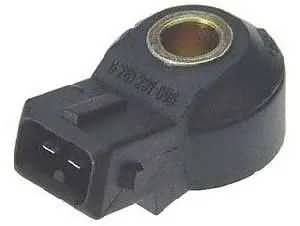
Credit: qcwo.com
Diagnosing And Fixing A Faulty Knock Sensor
A faulty knock sensor can cause a car to stall unexpectedly. Diagnosing and fixing this issue is crucial for smooth engine performance and avoiding potential breakdowns on the road.
< p>When it comes to diagnosing and fixing a faulty knock sensor, it’s essential to understand the potential impact it can have on your vehicle’s performance. A faulty knock sensor can lead to issues such as engine knocking, reduced fuel efficiency, and even stalling. Specifically, stalling can occur when the knock sensor fails to accurately detect engine vibrations, leading to incorrect timing adjustments. Fortunately, diagnosing and fixing a faulty knock sensor is a relatively straightforward process.Using Obd-ii Scanner For Diagnosis
One of the most effective methods for diagnosing a faulty knock sensor is through the use of an OBD-II scanner. This tool allows you to retrieve error codes related to the knock sensor, providing valuable insight into the underlying issue. By connecting the OBD-II scanner to your vehicle’s diagnostic port, you can quickly identify any trouble codes associated with the knock sensor, enabling you to pinpoint the source of the problem.
Testing The Sensor’s Resistance
Once you have identified a potential issue with the knock sensor, testing its resistance can further confirm its faulty status. Utilizing a multimeter, you can measure the resistance of the knock sensor to determine if it falls within the manufacturer’s specified range. If the resistance readings are outside of the acceptable range, it’s a clear indication that the knock sensor needs to be replaced.
Replacing The Faulty Knock Sensor
When it comes to replacing a faulty knock sensor, it’s important to carefully locate and access the sensor within the engine bay. This may require removing certain components to gain the necessary clearance. Once the faulty sensor is accessible, removing and replacing it with a new, high-quality sensor is essential to restore the proper function of the knock sensor system.
After installing the new knock sensor, it’s crucial to clear any error codes that were generated due to the faulty sensor. This can be done using the OBD-II scanner, ensuring that the vehicle’s ECU recognizes the updated sensor and eliminates any lingering fault codes.
By following these steps to diagnose and fix a faulty knock sensor, you can prevent potential issues such as stalling and restore your vehicle’s performance to its optimal state.
Preventative Measures For Knock Sensor Issues
Preventing knock sensor issues is essential for the smooth operation and longevity of your car’s engine. By taking a few preventative measures, you can avoid the inconvenience and potential damage caused by a faulty knock sensor. Here are some effective steps you can take to prevent knock sensor issues:
Using High-quality Fuel
Using high-quality fuel is crucial to maintain the optimal performance of your car’s engine and prevent knock sensor issues. Low-quality or contaminated fuel may contain impurities that can lead to knocking or pinging sounds in the engine. By choosing fuel from reputable gas stations, you can minimize the risk of these problems and ensure the proper function of your knock sensor.
Regular Engine Maintenance
Performing regular engine maintenance is key to preventing knock sensor issues. Routine maintenance tasks such as changing the oil and oil filter, replacing worn-out spark plugs, and cleaning the air filter can greatly contribute to the overall health of your engine. Additionally, it is important to adhere to the manufacturer’s recommended maintenance schedule to identify and address any potential issues before they escalate into more significant problems.
Avoiding Rough Driving Conditions
Driving in rough conditions can potentially cause stress on the engine and trigger knock sensor problems. Avoiding situations such as excessive engine load, aggressive acceleration, and prolonged engine idling can help minimize the risk of knock sensor issues. By adopting a smooth driving style and avoiding harsh driving conditions, you can reduce the likelihood of encountering engine knocking and subsequent stalling.
By following these preventative measures, you can ensure that your knock sensor operates optimally and your car’s engine continues to run smoothly. Remember, a well-maintained vehicle not only provides better performance but also enhances your overall driving experience.
Frequently Asked Questions For Can A Knock Sensor Cause A Car To Stall
Can A Knock Sensor Cause A Car To Stall?
Yes, a faulty knock sensor can cause a car to stall. When the sensor fails to detect knock, the engine’s timing might not adjust properly, resulting in engine knock. In response, the car’s computer system could reduce engine power, causing it to stall.
Regular maintenance and timely sensor replacement can prevent this issue.
How Does A Knock Sensor Work?
A knock sensor detects unusual vibrations or knocking sounds in the engine. It monitors the engine’s combustion process, identifying detonation or knocking that can harm the engine. Once knock is detected, the sensor sends a voltage signal to the car’s engine control module (ECM), which adjusts the engine’s timing to prevent damage.
What Are The Symptoms Of A Bad Knock Sensor?
A bad knock sensor can cause several symptoms, such as reduced engine power, loud knocking noises, poor fuel economy, and an illuminated check engine light. Delaying sensor replacement can lead to severe engine damage and costly repairs. If you suspect a faulty knock sensor, it’s best to have it inspected and replaced by a qualified mechanic.
Conclusion
A malfunctioning knock sensor can indeed cause a car to stall. It’s crucial to address this issue promptly to prevent further damage to the vehicle and ensure safety while driving. Regular maintenance and timely repairs can help in identifying and rectifying knock sensor problems, ultimately improving the overall performance of the vehicle.

